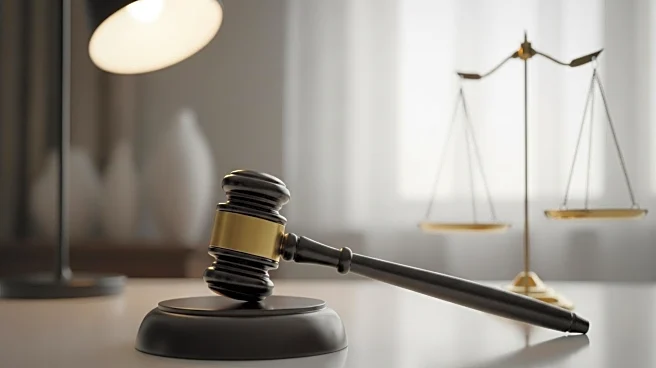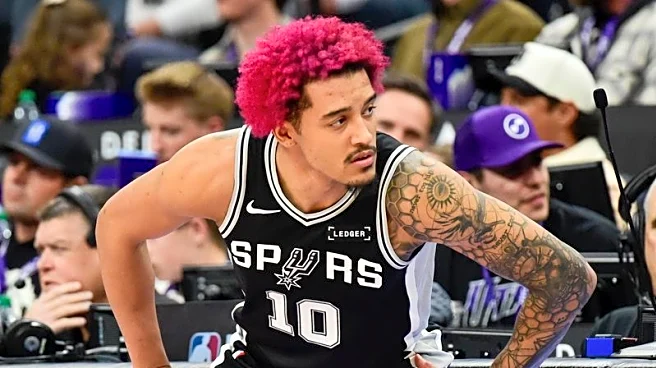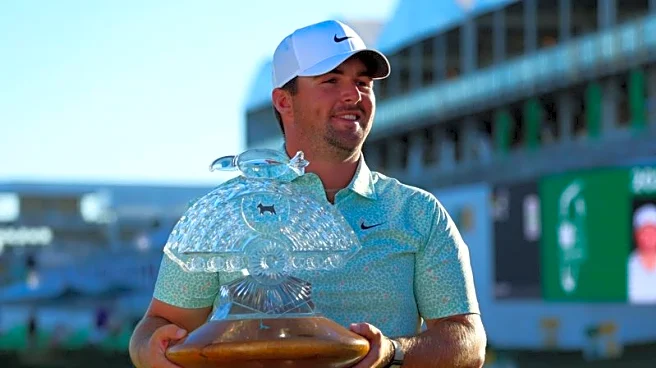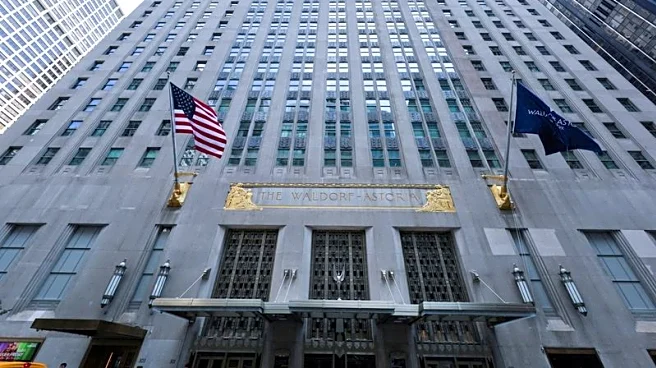What's Happening?
Kilmar Abrego Garcia's legal team has filed a request with a Tennessee court to prevent the Trump administration from making inflammatory comments about him. Garcia, who faces charges related to transporting undocumented migrants, has been the subject of numerous public statements by government officials, including President Trump and DHS Secretary Kristi Noem, labeling him as a criminal and gang member. His lawyers argue these statements could prejudice the jury pool and undermine his right to a fair trial. Despite a previous court order limiting extrajudicial comments, Garcia's attorneys claim that government officials have continued to vilify him publicly, necessitating further court intervention.
Why It's Important?
The case highlights the tension between legal proceedings and public discourse, especially when high-profile government figures are involved. The comments from the Trump administration could influence public perception and potentially impact Garcia's trial. This situation underscores the challenges in balancing free speech with the rights of individuals to a fair trial. The broader implications include potential shifts in public policy regarding immigration and the treatment of individuals accused of serious crimes, as well as the role of media narratives in shaping public opinion.
What's Next?
The court's decision on whether to grant Garcia's request for intervention will be pivotal. If the court sides with Garcia, it could set a precedent for limiting government officials' public comments in ongoing legal cases. Additionally, Garcia's legal team is seeking to reopen his immigration case to apply for asylum, which could further complicate his legal situation. The Trump administration's next steps, including potential deportation efforts, will be closely watched by legal experts and immigrant rights advocates.
Beyond the Headlines
This case raises ethical questions about the use of public platforms by government officials to comment on ongoing legal matters. It also touches on the cultural and legal dimensions of immigration policy in the U.S., particularly concerning individuals accused of gang affiliation. The long-term impact could involve changes in how such cases are handled and discussed publicly, potentially influencing future immigration and criminal justice policies.










